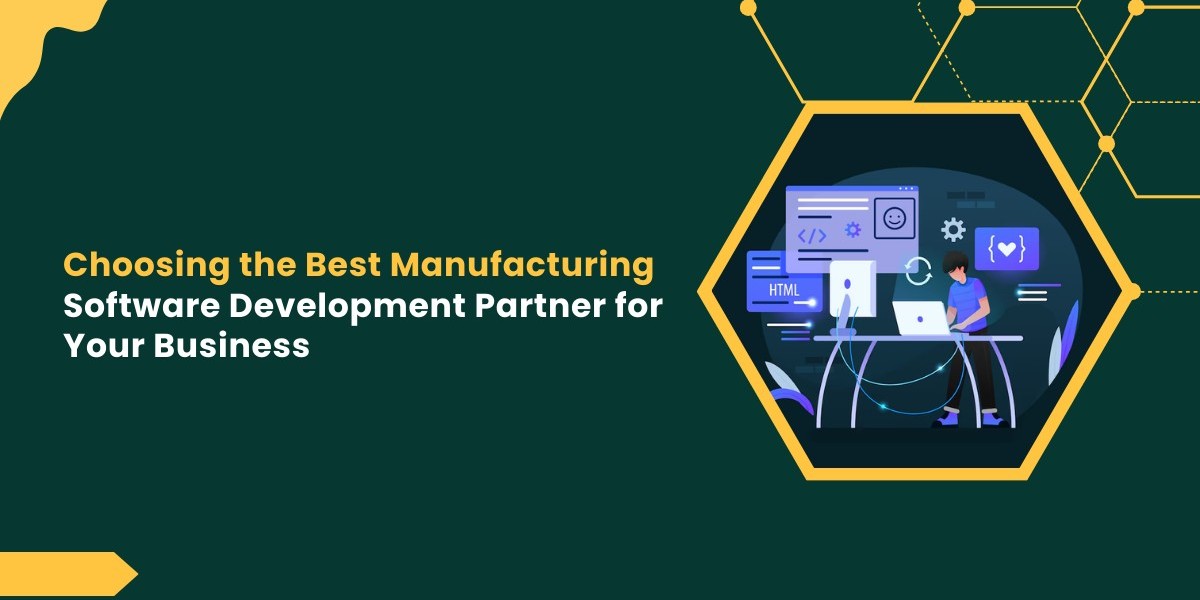The global smart manufacturing market is expected to grow from $236 billion in 2021 to over $450 billion by 2028, highlighting the increasing reliance on advanced software solutions in the industry.In today’s fast-paced manufacturing industry, technological advancements are key to staying competitive. Selecting the right Manufacturing Software Development Company is critical for achieving operational excellence, improving productivity, and driving innovation. With so many options available, businesses must carefully assess their needs and align them with the expertise of a Software Development Company.
The Role of Software in Modern Manufacturing
Technology powers every aspect of modern manufacturing. From inventory management to production automation, software solutions optimize processes and reduce inefficiencies.
1. Fact: 91% of manufacturers believe digital transformation is critical for their success, according to a Deloitte study.
2. Custom software enables real-time data analysis, predictive maintenance, and seamless integration across platforms.
What Is a Manufacturing Software Development Company?
A Manufacturing Software Development Company specializes in creating custom software solutions tailored to the unique needs of manufacturing businesses.
Core Offerings:
1. ERP systems for supply chain management.
2. MES (Manufacturing Execution Systems) for shop floor control.
3. IoT-based solutions for smart factories.
4. Quality control and compliance software.
Why Choose a Custom Software Development Company?
Generic software often lacks the flexibility to address specific operational challenges. A Software Development Company offers tailored solutions that fit your workflow.
Benefits of Custom Solutions:
1. Enhanced scalability.
2. Integration with legacy systems.
3. Better cost management through targeted functionalities.
Identifying Your Business Needs
Before engaging a development partner, clearly define your software requirements.
Key Considerations:
1. What are your pain points?
2. Do you need ERP, MES, or IoT solutions?
3. Is scalability important for future growth?
Example:
A mid-sized manufacturer facing frequent downtime might benefit from IoT-based predictive maintenance solutions.
Key Qualities to Look for in a Development Partner
Not all software development companies are equal. Evaluate potential partners based on specific criteria.
Checklist:
Industry Expertise: Do they understand manufacturing challenges?
Technological Proficiency: Are they skilled in AI, IoT, and automation?
Portfolio: Have they delivered similar projects?
Customization Ability: Can they adapt to your needs?
Post-Deployment Support: Do they offer ongoing maintenance?
Importance of Domain Expertise
A company with experience in manufacturing processes will better address your unique requirements.
Example:
A company developing MES software must understand shop floor dynamics and machine integrations.
Stat: 67% of businesses consider industry expertise a deciding factor when selecting a development partner (McKinsey report).
Evaluating Technological Capabilities
The right partner should be proficient in modern technologies.
Must-Have Skills:
1. IoT for connected systems.
2. AI for predictive analytics.
3. Cloud-based solutions for scalability.
4. Integration with existing ERP or CRM platforms.
Budget Considerations
Cost is a significant factor, but it should not compromise quality.
Steps to Determine Budget:
Define scope and features.
Compare quotes from multiple vendors.
Consider the ROI of a tailored solution.
Building a Long-Term Relationship
A software development project doesn’t end with deployment. Choose a partner committed to long-term collaboration.
Key Aspects:
1. Regular updates and maintenance.
2. Training for your staff.
3. Scalability for future needs.
Case Study: Success Story of a Custom Solution
Scenario:
A leading automobile parts manufacturer needed better inventory control.
Solution:
A Manufacturing Software Development Company implemented an IoT-enabled inventory system.
Result:
Inventory errors reduced by 40%.
Real-time monitoring enhanced decision-making.
Common Mistakes to Avoid
Mistakes Include:
Choosing a partner based solely on cost.
Overlooking post-deployment support.
Ignoring scalability for future growth.
The Role of Agile Methodology
An agile development approach ensures flexibility and faster delivery.
Benefits:
1. Continuous feedback loops.
2. Incremental deliveries for testing.
3. Faster response to changes.
Importance of Data Security
Manufacturing software often handles sensitive data.
Security Measures:
1. Robust encryption protocols.
2. Regular vulnerability assessments.
3. Compliance with industry standards (ISO, GDPR).
The Impact of IoT and AI in Manufacturing Software
IoT and AI are transforming the manufacturing landscape.
Applications Include:
1. Predictive maintenance using AI algorithms.
2. IoT sensors for real-time machine monitoring.
3. AI-driven quality checks for defect detection.
4. Fact: The IoT market in manufacturing is projected to reach $136.83 billion by 2030 (Fortune Business Insights).
Choosing Between Offshore and Onshore Development
Decide between local and global developers based on your requirements.
Pros of Offshore:
Cost-effective.
Access to a global talent pool.
Pros of Onshore:
Easier communication.
Better alignment with local regulations.
Conclusion
Selecting the right Manufacturing Software Development Company is a strategic decision that directly impacts your operational efficiency and business growth. By considering your needs, evaluating potential partners, and leveraging the latest technologies, you can ensure a successful partnership that drives results.









